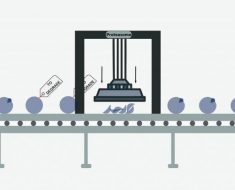Researchers developed a novel DNA influenza vaccine based on four micro-consensus antigenic regions selected to represent the diversity of seasonal H3N2 viruses across decades. The DNA vaccine protected mice against a lethal challenge with more than one influenza-A H3N2 virus and protected them from severe H3N2-related illness despite the lack of an exact sequence match between the vaccine immunogen and H3 immunogen. The findings are reported in a new Special Issue on DNA Vaccines in Human Gene Therapy,” a peer-reviewed journal from Mary Ann Liebert, Inc., publishers.
David Weiner, The Wistar Institute of Anatomy & Biology, Philadelphia, PA, and coauthors from Wistar and Inovio Pharmaceuticals, Plymouth Meeting, PA conducted the study entitled ” A Synthetic Micro-Consensus DNA Vaccine Generates Comprehensive Influenza-A H3N2 Immunity and Protects Mice Against Lethal Challenge by Multiple H3N2 Viruses.” This new DNA vaccine strategy was intended to elicit a comprehensive immune response and to represent a step forward in eliminating the need to reformulate a seasonal vaccine each year to protect against influenza-A H3N2.
The researchers designed a vaccine designed to elicit broad immune responses against di-verse influenza-A H3N2 viruses by engineering four synthetic hemagglutinin H3 immu-nogens. The H3 sequences used were chosen by aligning sequences from 233 influenza-A H3N2 strains representing viruses from across multiple decades. The researchers identi-fied four micro-consensus sequences with sufficient sequence similarity to predict cross-reactive immune responses against diverse H3N2 strains.
Source: Read Full Article





